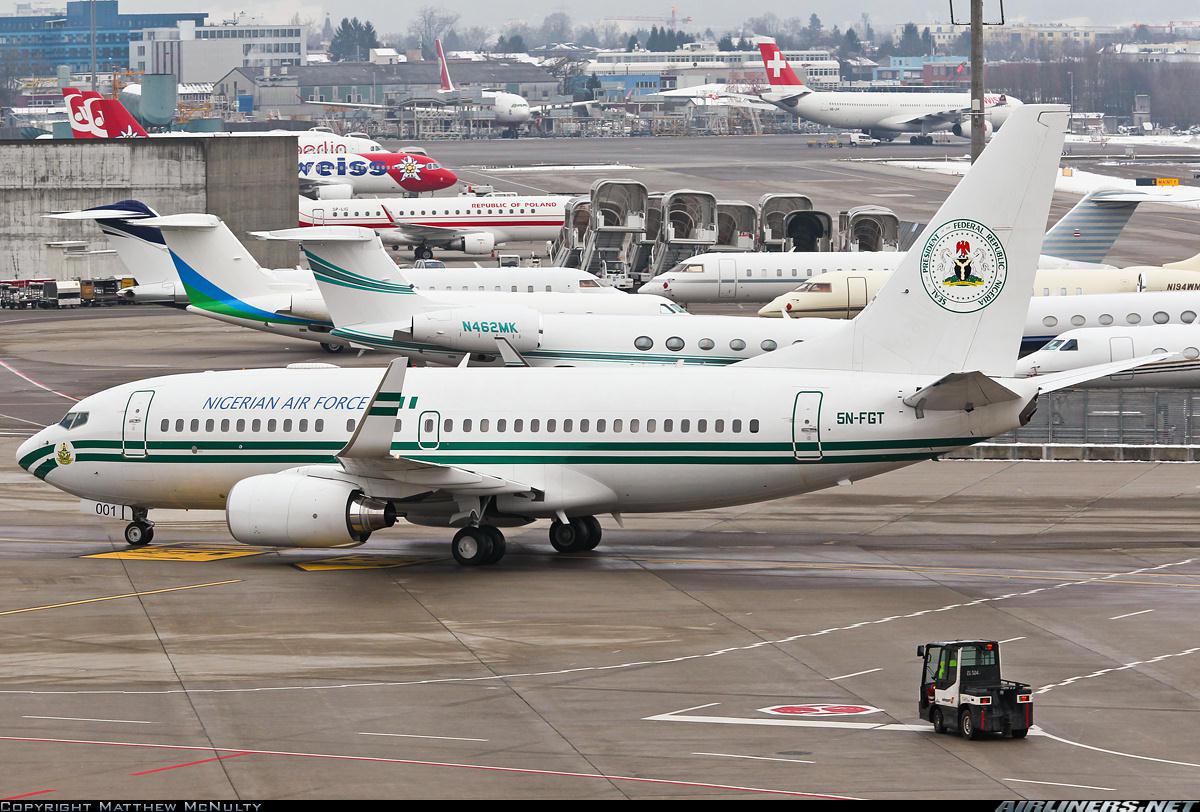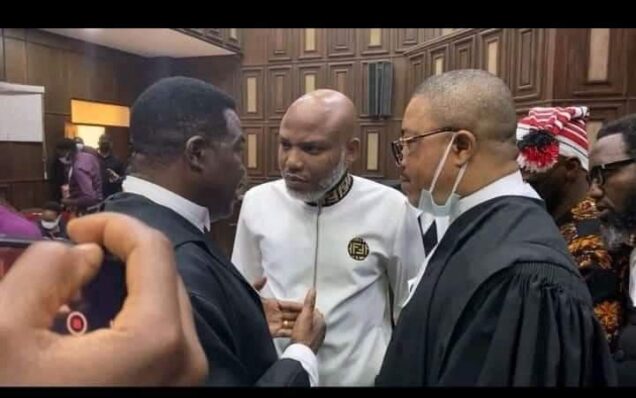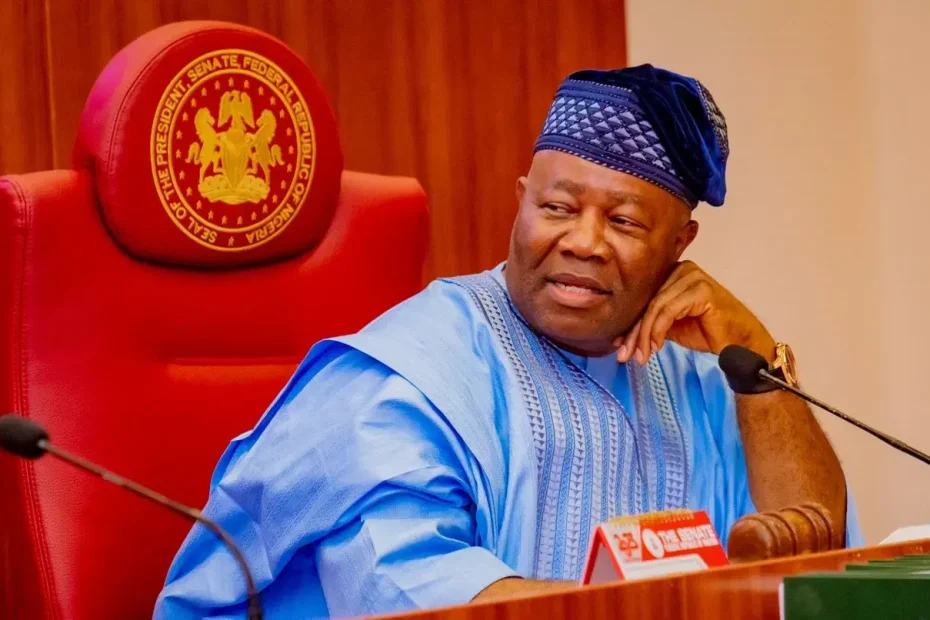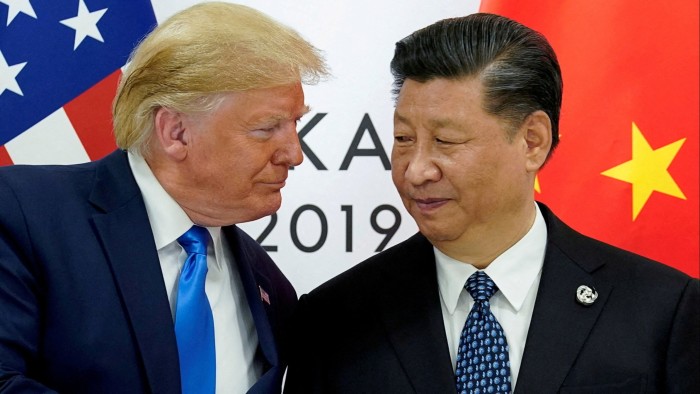Headlines
How FG Spent N19bn on Presidential Planes in 15 Months – Report

At least N19.43 billion has reportedly been spent on the maintenance and operations of the Presidential Air Fleet from July 2023 to September 2024.
According to GovSpend, a civic tech platform that tracks and analyses the Federal government’s spending, showed that for 2024, the payouts amounted to N13.55billion, representing 66 per cent of the allocations for the fleet in the 2024 fiscal year.
Most disbursements were labeled ‘Forex Transit Funds,’ typically funds allocated for foreign exchange requirements to facilitate international transactions and engagements.
In the context of the Presidential Air Fleet, such funds are used to cover expenses related to operations outside the country, including fuel purchases, maintenance or services in foreign currencies.
“When aircraft on the fleet are abroad, payments are often made in U.S. dollars or another foreign currency to ensure uninterrupted operations,” a government official explained.
In July 2023, N1.52bn was disbursed in two tranches of N846m and N675m for ‘Presidential air fleet forex transit funds.’
The following month, N3.1bn was disbursed in three tranches of N388m, N2bn, and N713m for the same item.
In November of that year, N1.26bn was released to the Presidential Air Fleet Naira transit account.
The first overhead for 2024 came in March, where N1.27bn were disbursed twice, amounting to N2.54bn. The transit account received N6.35bn in April, N4.97bn in May and N210m in July.
August saw the highest frequency of transactions, with N5.60bn released in six separate disbursements.
Although these transactions were not clearly labeled, the monies were paid into the Presidential Air Fleet naira transit account, including the N35m transfer made in September.
In late April, the transit account received N5.08bn; this came around the same time the President was on a two-nation tour to the Netherlands and Saudi Arabia.
Although Tinubu arrived in the Netherlands in a state-owned Gulfstream AeroSpace 550 Jet, the aircraft could not proceed to Saudi Arabia due to unspecified technical problems. He reportedly continued his journey on a chartered private plane.
At the time, the President’s Boeing 737 business jet was undergoing maintenance. It was later replaced with an Airbus A330 purchased for $100m in August through service-wide votes.
The nearly 15-year-old plane, an ACJ330-200, VP-CAC (MSN 1053), is “spacious and furnished with state-of-the-art avionics, customised interior and communications system,” Tinubu’s Special Adviser on Information and Strategy, Mr. Bayo Onanuga said, adding that it “will save Nigeria huge maintenance and fuel costs, running into millions of dollars yearly.”
The new Airbus A330 is just one of several aircraft currently on the Presidential Air Fleet, arguably one of Africa’s largest, with around 11 aircraft of various makes and models. Until August, it comprised the 19-year-old B737-700 and a 13-year-old Gulfstream Aerospace G550.
The BBJ was acquired during the tenure of former President Olusegun Obasanjo at $43m but became a money guzzler as it aged.
Onanuga, defending the purchase of Airbus A330, argued that the new Airbus 330 aircraft and the costs of maintaining the air fleet were not for the president but in the interest of Nigerians.
“It’s not President Tinubu’s plane; it belongs to the people of Nigeria, it is our property…the President did not buy a new jet; what he has is a refurbished jet – it has been used by somebody else before he got it, but it is a much newer model than the one President Buhari used.
“The one President Buhari used was bought by President Obasanjo some 20 years ago. There was a time when the President went to Saudi Arabia, and the plane developed some problems. The President had to leave the Netherlands with a chartered jet.
“Nigerians should try to prioritise the safety of the President. I’m not sure anybody wishes our president to go and crash in the air. We want his safety so that he can hand it over to whoever wants to take over from him,” Onanuga said.
The presidential aide said he discussed with the National Security Adviser, Nuhu Ribadu, on the faulty plane [Boeing 737 jet] and he said the maintenance costs were excessive because of the age of the aircraft, hence the need for another plane.
The presidential fixed-wing fleet includes a Gulfstream G500, two Falcon 7Xs, a Hawker 4000, and a Challenger 605.
Three of the seven fixed-wings are reportedly unserviceable. Meanwhile, the rotor-wing fleet includes two Agusta 139s and two Agusta 101s, all operated by the Nigerian Air Force but supervised by the Office of the National Security Adviser.
Former President Buhari promised to reduce the number of aircraft in the PAF to the absolute necessary.
In April 2023, three jets were put up for sale, but there were no specifics on which.
However, efforts to sell one of the Dassault Falcon 7x and the Hawker 4000 in October 2016 stalled when a potential buyer reduced their initial offer from $24m to $11m.
Since 2017, budgetary allocations for the fleet have shown a growing trend, with one exception in 2020.
The allocation for the fleet increased from N4.37bn in 2017 to N20.52bn in 2024, showing a 370 per cent rise in running costs.
In 2018, the fleet’s budget rose significantly by 66.13 per cent to N7.26bn, driven by a substantial increase in capital project allocations while maintaining similar levels for recurrent costs. This upward trajectory continued into 2019, slightly increasing the total allocation to N7.30bn.
The exception came in 2020, when the budget dropped by nearly seven per cent to N6.79bn, primarily due to decreased overhead costs, a reflection of the global economic impacts of lockdowns and disruptions in operations.
By 2021, however, the budget surged dramatically to N12.55bn—a record increase of 84.83 per cent from the previous year.
In 2022, maintenance expenses for each aircraft ranged from $1.5m to $4.5m annually.
The 2022, 2023 and 2024 appropriation acts earmarked N12.48bn, N13.07bn and N20.52bn respectively.
On his way to the 2024 Commonwealth Heads of Government Summit in Samoa, a foreign object damaged the cockpit windscreen of Vice President Kashim Shettima’s GulfStream aircraft during a stopover at JFK Airport in New York.
According to Lee Aerospace, manufacturers of the Gulfstream, jet windshields consist of thick multilayered structures of varying layers of glass and transparent acrylic built to withstand collision with a 2kg object.
However, damage to the windshield must have affected its inner layers. While specific prices for replacement can vary based on supplier, labour rates and regional costs, estimates suggest that a single windshield replacement for a G550 can range from $50,000 to $70,000 for part and labour costs.
In an interview with our correspondent, the General Secretary of the Aviation Round Table, Olumide Ohunayo, blamed the meteoric rise in the allocations for the PAF on the age of some of the aircraft in the fleet and declining value of the naira as well as the “commercial use” of aircraft by the Nigerian Air Force.
Ohunayo said, “The cost will definitely increase over the years because for one, this issue of the naira against the dollar. As the naira keeps falling to the dollar, we will see a rise in cost because most of the costs of training crew and engineers and replacing aircraft parts are all in dollars.
“Also, some of these aircraft are not new. The older the aircraft, the higher the cost of maintenance and operation.
“Lastly, during these past years, terrorism and insecurity have increased in Nigeria, which has also affected the cost of insuring the aircraft.”
For his part, the Executive Chairman of the Centre for Anti-Corruption and Open Leadership, Debo Adeniran, argued that the administration’s spending habits were opposite to Nigerians’ expectations of frugality.
“What we are getting from this administration is opposite to our expectation. We thought we would have an administration that would be frugal in spending and very meticulous at implementing its budget.
“But what we are getting is an administration that has fallen in love with profligacy; that doesn’t see anything wrong in living big amid a poverty-stricken nation.
“It is a reenactment of the Shagari administration, whereby they bought the biggest Mercedes Benz and made themselves as comfortable as possible without considering how much the masses are suffering.
“So when you look at a Vice President saying he’s not travelling [to Samoa] again because there was a splinter on the windscreen of his private aircraft. Why should that be the case?
“First and foremost, we need to be represented at such an international meeting, where we should be well represented by the first two citizens of this country.
“He abandoned that, which means we would have lost certain representation that we deserve at that forum. Two, money will have been spent on advance parties that went ahead of the Vice President. But he abandoned the journey altogether.”
Headlines
Court Gives Nnamdi Kanu Nov 5 Ultimatum to Open Defence

The Federal High Court in Abuja, on Tuesday, gave the leader of the Indigenous People of Biafra, Nnamdi Kanu, until November 5 to defend the terrorism charges filed against him or risk waiving his right to do so.
The trial judge, Justice James Omotoso, advised Kanu to consult legal practitioners experienced in criminal law to assist with his defence or to formally appoint a lawyer to represent him in court.
Justice Omotosho’s decision followed Kanu’s continued refusal to open his defence, insisting that there was no valid charge pending against him.
Kanu, who represented himself during Tuesday’s proceedings, told the court that he would not return to detention unless the charges against him were properly presented.
He argued that his continued detention by the Department of State Services was unlawful, maintaining that he had not breached any known law.
He also accused the court of disregarding the Supreme Court’s judgment which, according to him, condemned his extraordinary rendition from Kenya.
He demanded that the trial judge immediately discharge him from custody.
When reminded that the Supreme Court had ordered a fresh trial, Kanu maintained his position that the terrorism charge was invalid and incompetent.
Citing Section 36(12) of the 1999 Constitution, he argued that there was no existing law creating a terrorism offence in Nigeria.
“In Nigeria today, the Constitution is the supreme law. There is no valid charge against me. I will not go back to detention today. The Terrorism Prevention and Prohibition Act has been repealed. I cannot defend myself under a repealed law,” Kanu said.
He further challenged any lawyer to show him a valid charge, urging the court to “take judicial notice” of what he claimed was the repeal of the terrorism law.
“I cannot be tried under a law that has been repealed. Prosecuting me under such a law is a violation of my fundamental rights,” he insisted.
After several attempts to persuade him to enter his defence, Justice Omotosho adjourned proceedings until November 5, 2025, giving Kanu the final opportunity to either defend the charge or forfeit his right to do so.
During the session, counsel for the Federal Government, Adegboyega Awomolo (SAN), informed the court that some documents served on him by Kanu were unsigned and not endorsed by the court, arguing that they held no evidential value.
Headlines
‘Who Am I to Answer Trump’, Says Akpabio As Military Invasion Threat Divides Senate

There was drama in the Senate on Tuesday following the recent threat by Donald Trump, the President of the United States to take military action against Nigeria over alleged persecution of Christians.
It started when Godswill Akpabio, the Senate President, was addressing reports by an online platform alleging that he had publicly rebuffed Trump over his recent comments and had said Nigerians were “not complaining” about their condition.
The visibly displeased Senate President denied ever making such statements, describing them as “false and malicious.”
He condemned the publication, saying it was an attempt to create diplomatic tension and discredit the National Assembly.
“The fake report claimed I said Nigerians are not complaining that we like the way we are living. That is completely false. I have petitioned the police and the DSS,” he said.
Akpabio said, “Somebody will sit in the comfort of his room and fabricate a report, attaching fake pictures from 2023 when I visited Port Harcourt with senators for a completely different event, and then claim that the Senate President replied President Trump.
“Who am I to answer Trump?” Akpabio asked jokingly.
The issue, however, sparked heated reactions on the floor of the Senate as Akpabio, and his deputy, Barau Jibrin, openly differed on how the Nigerian legislature should respond.
While Akpabio dismissed reports that he had already reacted to Trump’s comments, declaring, “Who am I to answer Trump?”, Barau quickly interjected, insisting that he was not afraid of the American leader.
“I’m not scared of Trump. I will say my mind. I’m a Nigerian. Nigeria is a sovereign nation,” Barau said passionately.
The Deputy Senate President added, “I’m a parliamentarian, the Deputy Senate President, I can speak. Don’t be scared of Trump. You can say your mind about Trump. We are a sovereign nation.”
The exchange, which briefly lightened the mood in the chamber, underscored a divide in tone between both presiding officers on how Nigeria’s parliament should handle the diplomatic row.
“It is the Presidency that will respond to President Trump, not the Senate President. But who is that person that would ascribe a comment to me when I was never contacted?”
Akpabio urged security agencies to investigate and prosecute those behind the viral story, describing it as an effort to “cause friction and bring the Nigerian Senate into disrepute.”
“I believe the Cybercrimes Unit of the police, the DSS, and others should find that character out. This is meant to sow division. Social media should not be allowed to break Nigeria,” he added.
The Senate President, however, noted that the Red chamber would take an official position on Trump’s remarks once the federal government had clarified its stance.
He said, “When the executive responds, we will take a position as a Senate. Until then, no one should speak for this institution.”
Over the weekend, Trump declared via social-media that Nigeria faces “an existential threat” to its Christian population and warned that the U.S. may deploy troops or conduct air-strikes if the Nigerian government fails to halt the killings.
He instructed the Pentagon to prepare for possible action and threatened to cut all U.S. aid to Nigeria.
In tandem, the U.S. re-added Nigeria to its “Country of Particular Concern” list for religious freedom violations.
The Nigerian government rejected the designation and the characterisation of persecuting Christians, insisting that Nigeria protects religious freedom for all.
Source: businessday.ng
Headlines
China Tackles Trump over Invasion Threat Against Nigeria

China, on Tuesday, opposed US President Donald Trump’s threat to carry out military action against Nigeria over the alleged persecution of Christians, as it backed the Nigerian government in leading its people to follow a development path in line with its national conditions.
Trump Saturday said if the Nigerian government continues to allow the killing of Christians, the US will immediately stop all aid and assistance to the West African country, and may go for military action to wipe out the Islamic terrorists.
Asked for her comments on Trump’s threat, Chinese Foreign Ministry spokesperson Mao Ning told the media that the Nigerian Foreign Ministry issued a statement, stating that the US’s claims did not reflect the current realities in Nigeria, and the government had remained committed to fighting terrorism, strengthening interfaith harmony, and protecting the lives and rights of all its people.
As a comprehensive strategic partner, China firmly supports the Nigerian government in leading its people to follow a development path in line with its national conditions, Mao said.
“China opposes interference by any country in the internal affairs of other nations under the pretext of religion or human rights and opposes the arbitrary use of sanctions and threats of force,” she said.
On the reports that Venezuela is seeking missiles and drones following a dozen US strikes on the boats in the region on the suspicion that they carried drugs, Mao said China is opposed to the use of force in the name of fighting drug cartels.
China supports enhanced international cooperation in combating transnational crimes, but opposes the use of threats of using force in international relations, and actions that undermine peace and stability in Latin America and the Caribbean, she said.
China is against unilateral so-called law enforcement operations against vessels of other countries that exceed reasonable and necessary limits, she added.
“We hope the US will carry out normal law enforcement and judicial activities within bilateral and multilateral legal frameworks,” Mao said, without mentioning whether China will support military equipment to Venezuela.
“China’s normal exchanges and cooperation with Venezuela are conducted between sovereign states, without targeting any third party, nor are they subject to interference or influence by any third party,” she said.
Source: orissapost






